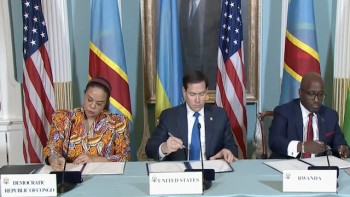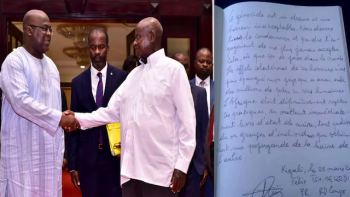Abiy Ahmed Ali was AfroAmerica Network Man of Year 2018 (see here). He is now the 2019 Nobel Peace Prize Winner. Under his leadership, Ethiopia has been going through an unprecedented democratic transformation. Lieutenant Colonel Abiy Ahmed Ali was selected, in April 2018, to lead Ethiopia by the ruling party, Ethiopian People's Revolutionary Democratic Front (EPRDF).
After he was elected, Abiy Ahmed immediately enacted major and deep democratic reforms and opened the political space in Ethiopia, putting an end on decades or dictatorial and repressive regimes. He engaged in successful peace negotiations with the former enemy Eritrea, put an end to an almost four-month-long state of emergency and, most importantly, freed the country's thousands of political prisoners. With such bold moves, he freed political prisoners, sat and welcomed rebel leaders and allowed the Ethiopian people to finally frely to express their opinions, have a free press and a freedom of movement, and to leverage their potentials.
On April 2, 2018, Abiy Ahmed was confirmed and sworn in by the Ethiopian parliament as Prime Minister of Ethiopia. Immediately he made the following commitments:
- enact political reforms;
- promote the unity of Ethiopia and the unity among the peoples of Ethiopia;
- reach out to the Eritrean government to resolve the ongoing Eritrean–Ethiopian border conflict after the Eritrean–Ethiopian War
- reach out to the political opposition inside and outside of Ethiopia.
His commitments were welcomed both in Ethiopia and around the world, especially by the opposition, including the armed rebellions. Since then, he has been implementing the commitments which has won him internal and worldwide support and approval. The recognition of his efforts have now won him the Nobel Peace Prize a year later.
Will his dictator friends learn from him.
At some points, he has faced critics who point to his closeness to some of the most brutal dictators in Africa, esepcially the Rwandan President General Paul Kagame. The critics wonder whether he will able to convince these African dictators to follow his path and enact political and democratic reforms in their countries, similar to the one Abiy Ahmed is successfuly implementing in Ethiopia. Perhaps, with the Nobel Prize, he will be able to do it.

















